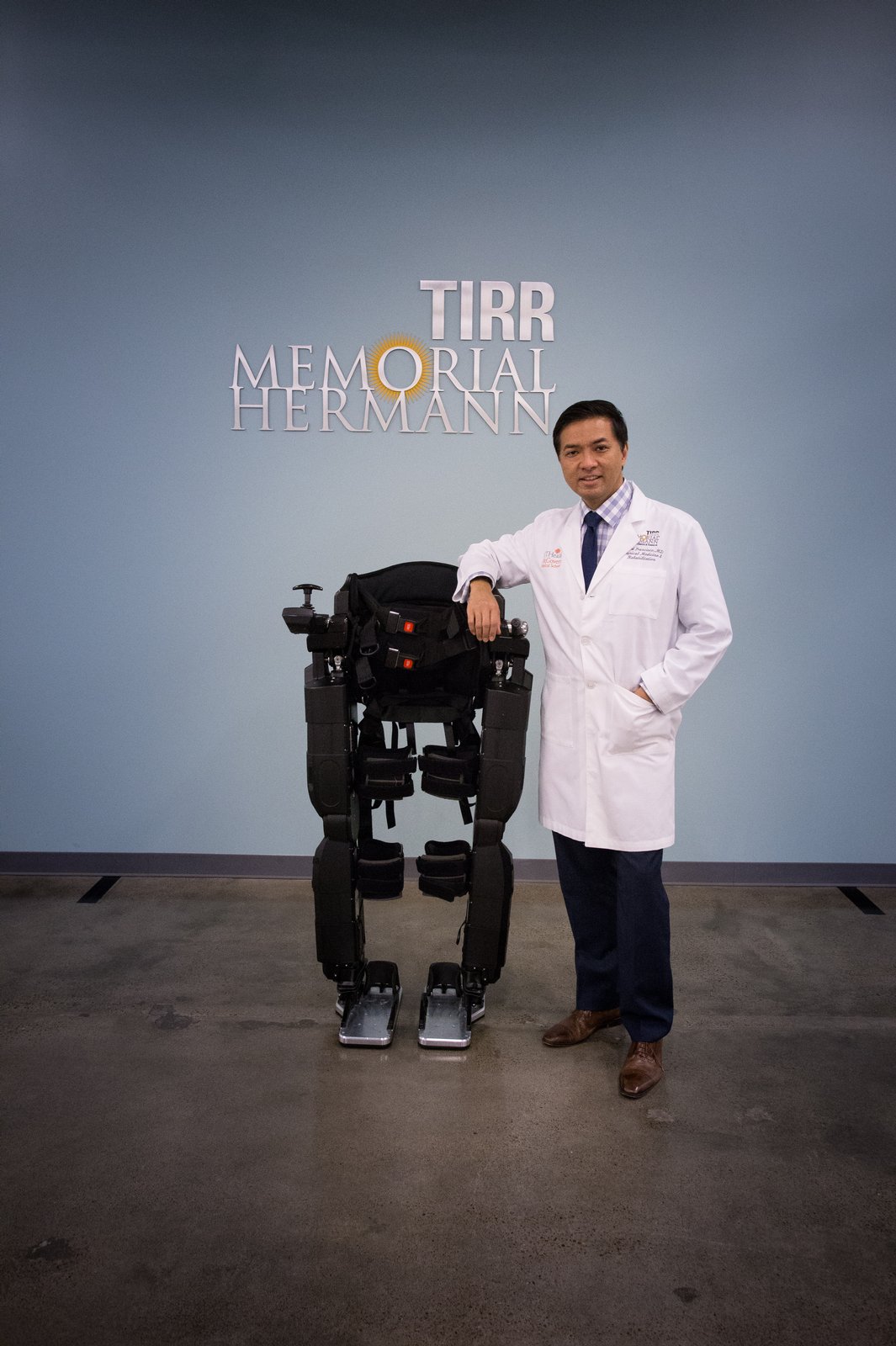David Jacob Anzaldua awoke to his Chevy Silverado biting the rumble strips that guide US Highway 79 in Jewett, Texas. He jerked the wheel, but his truck began rolling across a ditch before wrapping around a tree outside Leon High School, where he once owned Friday nights as an all-state linebacker.
It was the morning before the 18-year-old freshman’s final exams at Tyler Junior College, and he was determined to finish the year strong. He planned to transfer to a four-year university to play college baseball and pursue a degree in kinesiology—but one moment of drowsiness on his way home after spending the night in College Station, Texas, changed his life forever.
“I knew something was wrong immediately,” says Jacob. “I couldn’t lift my arms to turn down the radio or turn off the truck.” The last thing he remembers is the pulsing blades of the helicopter that carried him to a nearby hospital in Temple.
The crash fractured Jacob’s C4 vertebra halfway down his neck, paralyzing him from the neck down.
Doctors in nearby Temple, Texas, immediately performed a procedure to fuse Jacob’s injured vertebra to stabilize his spine and decompress the nerves, but they believed he would never move again. Severe injuries to the C4 vertebra often cause quadriplegia, and patients may need a ventilator to breathe.
Five days after his accident, doctors transferred him to Memorial Hermann-Texas Medical Center to receive advanced postsurgical care led by UTHealth neurosurgeon Daniel H. Kim, MD. Kim’s team helped Jacob fight off life-threatening bouts of pneumonia, infections, and breathing complications. Since then, UTHealth experts from departments such as physical medicine and rehabilitation, orthopedic surgery, and psychiatry and behavioral sciences have taken charge of Jacob’s recovery.
A winning attitude
For nearly a month, a tracheostomy in his neck tethered him to a ventilator. He felt trapped inside his own body, unable to move.
Family and friends visited his bedside daily and helped him muster the courage and strength to push through. “My dad raised me to find my way through any obstacle,” says Jacob. “I realized this accident may alter my life, but it doesn’t have to ruin it.”
Kim also infused Jacob and his family with a crucial dose of hope. “Dr. Kim told me physical therapy would be my new favorite sport,” says Jacob. “With hard work and determination, I could still find a way to do the things I love.”
One month after his accident, Jacob wholeheartedly dove into rehabilitation at TIRR Memorial Hermann with UTHealth faculty. The teenager—who once traveled across Texas hunting, fishing, and playing sports—began relearning basic life functions.
Isaac Hernandez Jimenez, MD, directs Jacob’s rehabilitation team at TIRR Memorial Hermann, which includes physical, occupational, recreational,
respiratory, and speech therapists, as well as psychologists, rehabilitation nurses, and social workers. Each member of the team works together to help Jacob regain independence.
“Between Jacob’s extraordinary willpower and the rehabilitation team’s expertise, he has already reached milestones that others thought were unattainable,” explains Hernandez Jimenez.
Dreaming big
Jacob hit his first milestone in his first week of rehabilitation: slightly raising his left arm. By October, he was brushing his teeth with a special toothbrush. Setting and reaching new goals sparked a greater desire.
“I go hunting every year,” he says. “Deer hunting season opened in September, and I wasn’t going to miss it.”
In November, a utility vehicle transported Jacob and his wheelchair into the brush of Loranger, Louisiana. Half a year after his devastating accident, he again felt the thrill of the hunt he has known since childhood.
With help from UTHealth experts, Jacob continues pushing himself to regain more independence. Psychologists and other behavioral health specialists have helped him turn his aspirations toward the future. Jacob plans to return to college to complete a psychology degree, which will enable him to counsel others who have experienced traumatic injuries.
“I’m realistic, but I don’t set limitations on myself,” says Jacob. “I’m going to walk again, or I’m going to die trying.”
A leader in spinal cord injury rehabilitation
 The Department of Physical Medicine and Rehabilitation at McGovern Medical School, led by Gerard E. Francisco, MD, is dedicated to advancing health care, education, and research in spinal cord injury rehabilitation. In partnership with the Spinal Cord Injury Program at TIRR Memorial Hermann, the department has a rich history of improving outcomes for patients with devastating spinal cord injuries.
The Department of Physical Medicine and Rehabilitation at McGovern Medical School, led by Gerard E. Francisco, MD, is dedicated to advancing health care, education, and research in spinal cord injury rehabilitation. In partnership with the Spinal Cord Injury Program at TIRR Memorial Hermann, the department has a rich history of improving outcomes for patients with devastating spinal cord injuries.
“Treating patients with spinal cord injuries is incredibly rewarding,” says Francisco. “The new technologies we have access to, including robots and exoskeletons, can substantially improve the function and quality of life for our patients.”
Francisco is investigating how robotic lower-limb exoskeletons may help train patients to walk again after a stroke. The knowledge gained from this study will help develop biorobots and powered, wearable exoskeletons that could benefit patients with spinal cord injuries. Additionally, UTHealth physical medicine and rehabilitation researchers at the NeuroRecovery Research Center at TIRR Memorial Hermann are investigating how nonsurgical brain and spine stimulation can boost recovery of arm movement in people paralyzed from the neck down.
“We are looking beyond just helping patients walk again,” he says. “We are empowering them through rehabilitation and helping them contribute to society, while guiding them toward happiness.”


